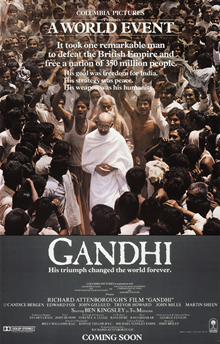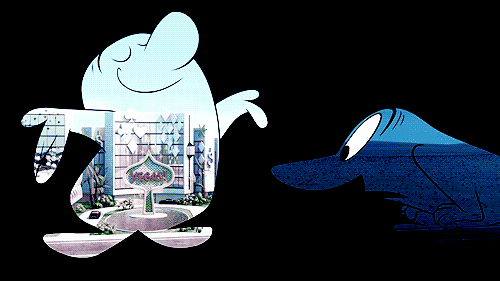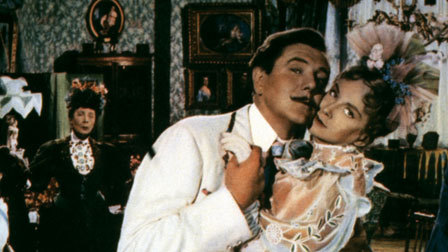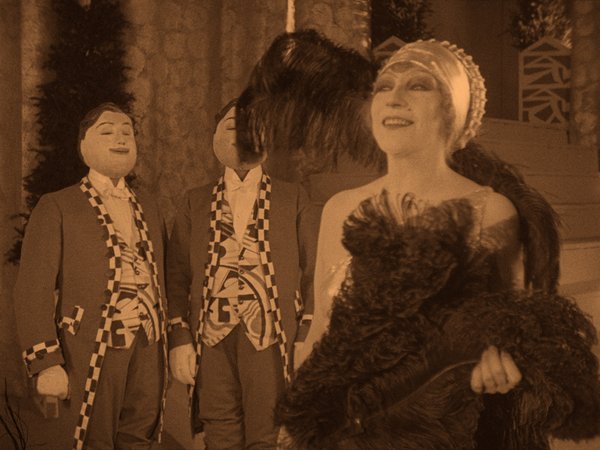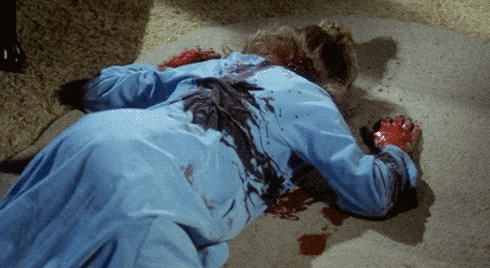
The Toolbox Murders
(Dennis Donnely, 1979)
The first 20-30 minutes of The Toolbox Murders, when we watch a masked, black-gloved madman violently murder a series of sexually promiscuous women with a variety of power tools, play like a greatest hits compilation for slashers. No story to tie the scenes together. Just a vicious cycle of sex, violence and death wrapped in the lurid, exploitative sleaze synonymous with the decade. Then the murders stop and it becomes an entirely different film, transforming from a slasher into a psychological thriller. The remaining hour is nowhere near as effective as those first 20-30 minutes. The movie still has its moments -- like Cameron Mitchell, in a pretty good performance for a film of this type, creepily sucking on a lollipop while conversing with a kidnapped girl he's deluded himself into believing is his deceased daughter. And I thought the ending was fairly twisted, trading one murderous psychopath for another. But the poor performances (especially from the teenage duo who take it upon themselves to solve the mystery) and the the awkward pacing (made all the more glaring on the heels of the streamlined first act) drag the film down. Yet even though two-thirds of The Toolbox Murders is mediocre, I find myself giving it a positive rating based purely on the strength of those first 20-30 minutes. There's a highly memorable death scene in those early moments that sees the camera linger like a peeping tom over a red-headed beauty masturbating in the bathtub before she's forced to fight for her life -- still fully nude, of course -- from the final penetration of the madman's nail gun while a country song plays idiosyncratically on the soundtrack. I learned afterwards that the red-headed beauty, Kelly Nichols, went on to become a successful porn actress. Naturally, I checked out some of her work while performing my own bit of self-abuse. The Toolbox Murders is the type of horror many will dismiss as vile, misogynistic trash, but its ugliness is what appeals to me. I like the film's strengths enough to overlook its multitude of flaws. Oh, and did I mention those first 20-30 minutes are pretty awesome?
A Walk in the Woods
(Ken Kwapis, 2015)
A film about two old dudes going for a hike doesn't sound like much of a film, but when those old dudes are Robert Redford and Nick Nolte, the hike suddenly becomes much more interesting. Redford and Nolte play off one another really well. There are a few genuinely funny moments, like Nick Nolte helping big Beulah remove her panties at the laundromat. Pretty much all the best bits belong to Nolte, whose performance alone saved this unambitious, unremarkable film from being too mediocre to watch. If the film around him had more meat to it, I'd say he gives one of the better supporting performances from last year. A Walk in the Woods is decent while it lasts, but it doesn't really amount to anything in the end.
Faces of Death
(John Alan Schwartz, 1978)
I remember my dad renting this from the video store when I was a kid and me pretending to play with my action figures while sneaking glances at the screen. Certain scenes -- monkey brains as hors d'oeuvres, especially -- have stuck with me all these years. Having finally watched Faces of Death in its entirety, it's blatantly obvious that much of the "shocking real footage" is cheaply staged and laughably fake. The authentic footage is disturbing, especially the creepy autopsy stuff and the barbaric cruelty of the animal-related scenes, but the potency of those scenes is partially sapped by the artificiality of the rest of the film and its corny presentation. Considering how easy it is to find graphic, horrific, real-life ***** on the internet, Faces of Death feels antiquated and oddly quaint -- a curious relic whose past financial success speaks to our undying morbid curiosity and fascination with the taboo. I'm glad to have finally seen it, but the film is too boring and too outdated to shock anyone but the least desensitized viewers.
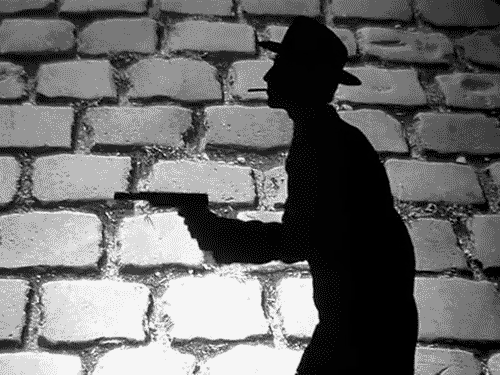
Rififi
(Jules Dassin, 1955)
A lot has been made about the heist sequence, and deservedly so. That dialogue-free thirty-minute stretch is as riveting as any scene you'll find. The painstaking level of detail, the sound-editing, the visual storytelling, the body language and facial expressions of the perspiring performers -- everything about that sequence is the epitome of cinematic excellence. I didn't think it was possible to top the heist sequence in Le Cercle Rouge, but Rififi has it beat. However, this film is so much more than one famed sequence. All three acts -- the preparation, the heist, the ensuing fallout -- are incredible, and the stakes and the level of danger steadily increase throughout the running time. Rififi feels darker and more cynical than most noir I've seen. The film has plenty of style, but it feels more grounded in realism than other entries in the genre. This is noir that's grizzled and stoic. Noir that's been through hard times. Noir with dirt under its fingernails and deep crevices beneath its fedora. Jean Servais perfectly embodies both the gravitas of his character and the no-nonsense attitude of the film. Allusions to the director's blacklisting add extra subtext to the film for viewers looking to read into such things, and the film's overall influence can be felt in crime films all these decades later. Easily one of the best noir films I've seen and a definite contender for my 50's list.
Never Been Kissed
(Raja Gosnell, 1999)
Drew Barrymore has the adorkable thing down pat, and her inherent likability was enough to keep me from hating this trite, lazy, unfunny rom-com. A lot of familiar faces litter the cast: David Arquette, Molly Shannon, John C. Reilly, Jessica Alba, James Franco, Octavia Spencer, among others. Highlight of the film: Leelee Sobieski (the unpopular nerd of the school even though she's hotter than nearly all of the popular girls) in a skintight body suit. I'd take her to the prom in a heartbeat.
Wild Bill
(Walter Hill, 1995)
This makes the sixth Walter Hill film I've seen this year (the others: 48 Hrs., Another 48 Hrs., Hard Times, The Long Riders and The Driver -- all of which are very good, especially The Driver). With each film, I grow increasingly fond of Hill's no-nonsense approach to directing. His films are so masculine that they practically have hair spouting from their chest. Wild Bill fits that high-testosterone mold, and the subject matter and the western setting should provide the perfect canvas for Hill to explore his usual themes. Unfortunately, I think the film suffers from trying to cram too much legend into a 90-minute film. Time jumps bombard the viewer. John Hurt's narration is unnecessary. The decision to film the black-and-white flashbacks in a grainy, low-fi resolution is jarringly distracting. Negatives aside, Wild Bill is a decent western when it gets out of its own way and allows the primary story to breathe. Jeff Bridges is a good fit for the mythic titular figure and Ellen Barker delivers an inspired performance as Calamity Jane. I just feel like Hill tried to do too much with this one, experimenting in areas where simplicity was better served, and he's never able to wrestle together the historical and psychological examinations of Wild Bill in a way that doesn't feel incongruous.
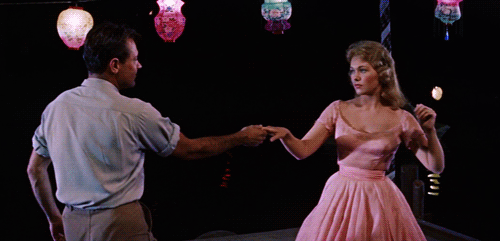
Picnic
(Joshua Logan, 1955)
Normally I like films adapted from plays, and the themes and subject matter remind me of the territory Elia Kazan explored so skillfully in the same decade, but Picnic just never really worked for me. William Holden drifts into town, removes his shirt, and all the women simultaneously start ovulating. It doesn't bother me that William Holden is too old for the part (although I will admit that his advanced age is distracting during a few scenes). I think he's the best part of the film. There's a lot of sexual repression and innuendo that might have been eye-opening to audiences in 1955, but it's Sunday school stuff in 2016. My main problem with the film is that it drags its feet for much of the running time. When passions finally arise and conflict presents itself, everything feels too rushed to be engaging and too histrionic to be taken seriously. There's an excellent dance scene between William Holden and Kim Novak that's easily the highlight of the film. It's the only scene where the two share any chemistry. I thought Kim Novak gave a very poor performance. She's supposedly the town beauty, but I found myself much more attracted to her sister (played by Susan Strasberg), even though the sister dresses tomboyishly and occasionally wears glasses, thus making her "plain" by Hollywood logic. Not a bad movie, but certainly disappointing.
Ashes and Diamonds
(Andrzej Wajda, 1958)
I feel like my ignorance of the socio-political scene in Poland at the end of WWII put me at a disadvantage. (Not that I mind too much since it gives me an incentive to do a bit of research and return to the film at a later date when I can glean more from it.) Luckily, even though the political repercussions were mostly lost on me, the human element of the story was strong enough to make up for it. The film is beautifully shot, and there's a cool, assured stylishness to the way events unfold that's reflective of the James Dean-like leading man (who's often portrayed in iconic fashion, with his tommy gun and tinted shades, on the film's posters -- an image largely responsible for me watching the film in the first place). The 24-hour time frame adds an immediacy to the proceedings. The scenes between cursed soldier Maciek and the lovely, strong-willed barmaid are excellent. The ending is incredible. Apparently this is the last chapter in a loose war trilogy by the same director. I'll seek out the first two before submitting my 50's list.
Mister Lonely
(Harmony Korine, 2007)
Regardless of what you think about the guy, you can't dispute the fact that Harmony Korine makes very unique films. I'm in the minority that loved Spring Breakers (I'd even go so far as to call it one of the best films of the decade) and while I don't have any particular fondness for Gummo, it's certainly fascinating in the what-the-f*ck-am-I-watching-and-why-can't-I-take-my-eyes-off-it sense. Yet I struggled to stay engaged with this peculiar tale of celebrity impersonators. Korine's great eye for imagery is present here, as is his obvious affection for freaks and misfits, but his ideas in Mister Lonely feel too haphazard, his artistic vision more distracted than abstract, and his presentation more closely resembling that of an ambitious amateur than an auteur. Throw in the absurd side-plot involving Werner Herzog as a priest piloting a plane full of sky-diving nuns -- which seems to have no relation, even thematically, with the primary story -- and I haven't a clue what the hell Korine was trying to say with this oddball of a film.
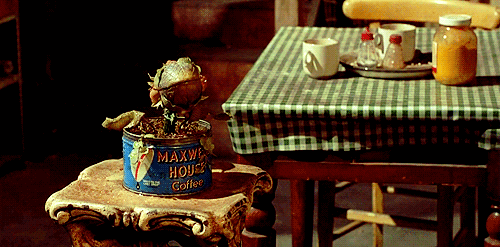
Little Shop of Horrors
(Frank Oz, 1986)
More charming and enjoyable than expected. The songs are surprisingly catchy, so much so that I've gone back and listened to some of them again in recent days. The puppet effects for Audrey II, that "mean green mother from outer space," are very impressive. The cast is wonderful. Rick Moranis shows why he had a monopoly on these likable nerd roles back in the day. Ditzy, squeaky-voiced women with prominent cleavage has always been a winning combination for me, so it's no wonder I fell in love with Ellen Greene's character. The moment she belts out "Suddenly Seymour" with such unbridled passion that her voice cracks nearly gave me goosebumps. The cameos are fun. I'd watch an entire film devoted to Steve Martin's sadistic dentist. His goofy take on Marlon Brando's The Wild One -- with just a dash of Elvis thrown in for good measure -- was hysterical. He was the highlight of the film for me, and I'm not even a big Steve Martin fan. The best thing about B-movies is that, by appealing primarily to niche audiences, filmmakers don't have to worry about sacrificing their vision for mass consumption. The sad fact that the studio forced a happily-ever-after into The Little Shop of Horrors after test audiences responded poorly to the original ending flies in the face of its B-movie origins. Luckily I was able to find the original ending on Youtube. Fun movie that I'll definitely be revisiting. I'm also very curious now to check out the original, which I own but haven't seen.
The Gift
(Joel Edgerton, 2015)
For all its twists and turns and revelations, The Gift doesn't offer much in the way of surprises, but thanks to a trio of good performances, smart direction and solid atmosphere, the movie remains compelling despite its predictability. The suspense builds slowly but effectively. I find Joel Edgerton to be a creepy looking motherf**ker anyway, so his appearance automatically makes him a good fit for the character. He imbues his character with a trace of childlike innocence that helps to make him very sympathetic, especially as we learn more about his past. Jason Bateman trades in his usual funny bone for douchebaggery. And Rebecca Hall, caught helplessly in the middle, does well carrying most of the film. This type of psychological thriller was commonplace in the 90's, but they don't seem to get made as often nowadays. And when they do, they're rarely as well made and mature as The Gift.
The Man From U.N.C.L.E.
(Guy Ritchie, 2015)
I don't think Guy Ritchie is a bad director, but for whatever reason I have a hard time engaging with his films. I gave up on Snatch and I fell asleep during both Sherlock Holmes films. At least I managed to stay awake during The Man From U.N.C.L.E. (barely), but I never felt invested in anything happening on screen. Part of the problem is that I'm just not into spy films. I also think Henry Cavill and Armie Hammer are too vanilla to carry a film. I was impressed with Alicia Vikander in Ex Machina, but I barely registered a pulse from her here. Same goes for the villain. The movie's attempts at suavity annoyed me. I guess the old-fashioned approach and the film's obvious respect for the genre are admirable, but the only thing I enjoyed about the film was the soundtrack.
__________________
Last edited by Captain Spaulding; 06-20-16 at 12:45 PM.
 - looking forward to hopefully seeing it do well on the upcoming 50's list
- looking forward to hopefully seeing it do well on the upcoming 50's list 



